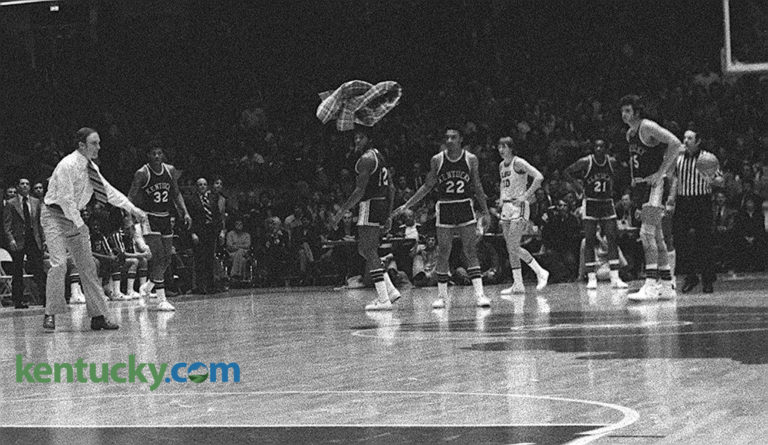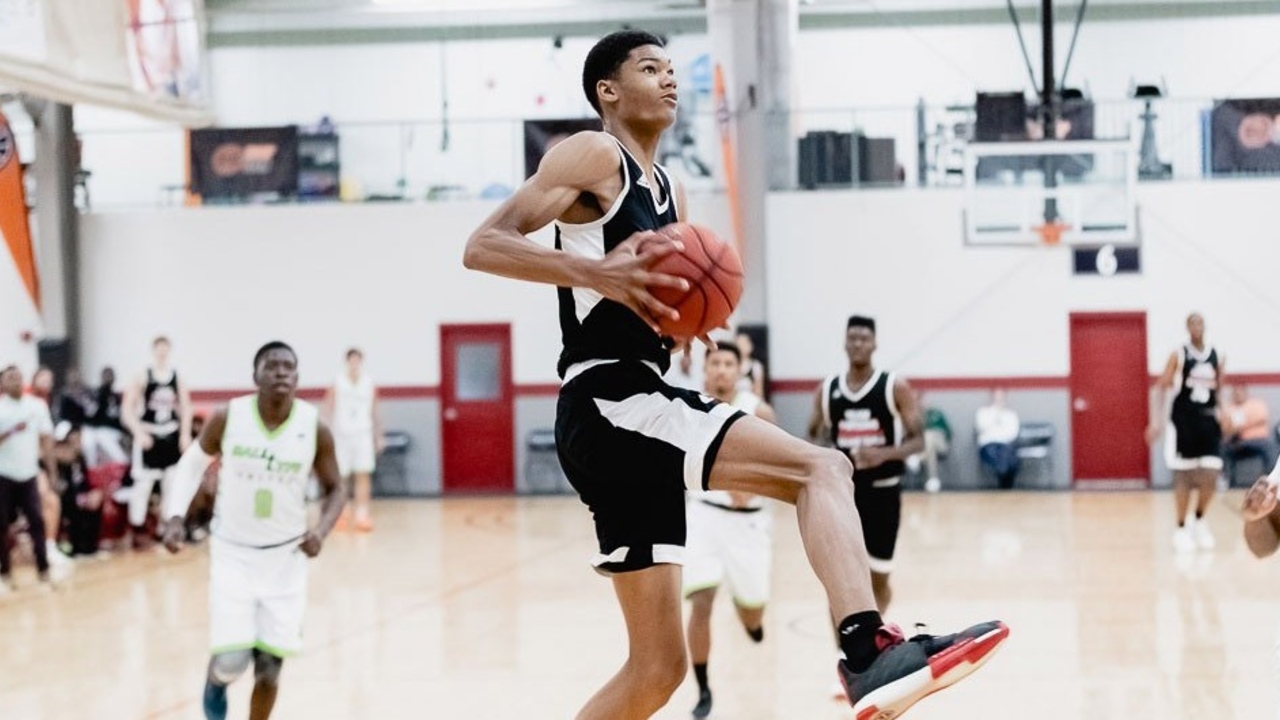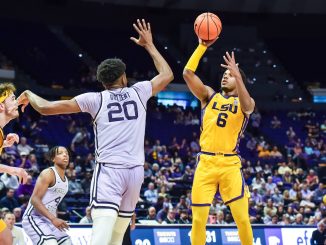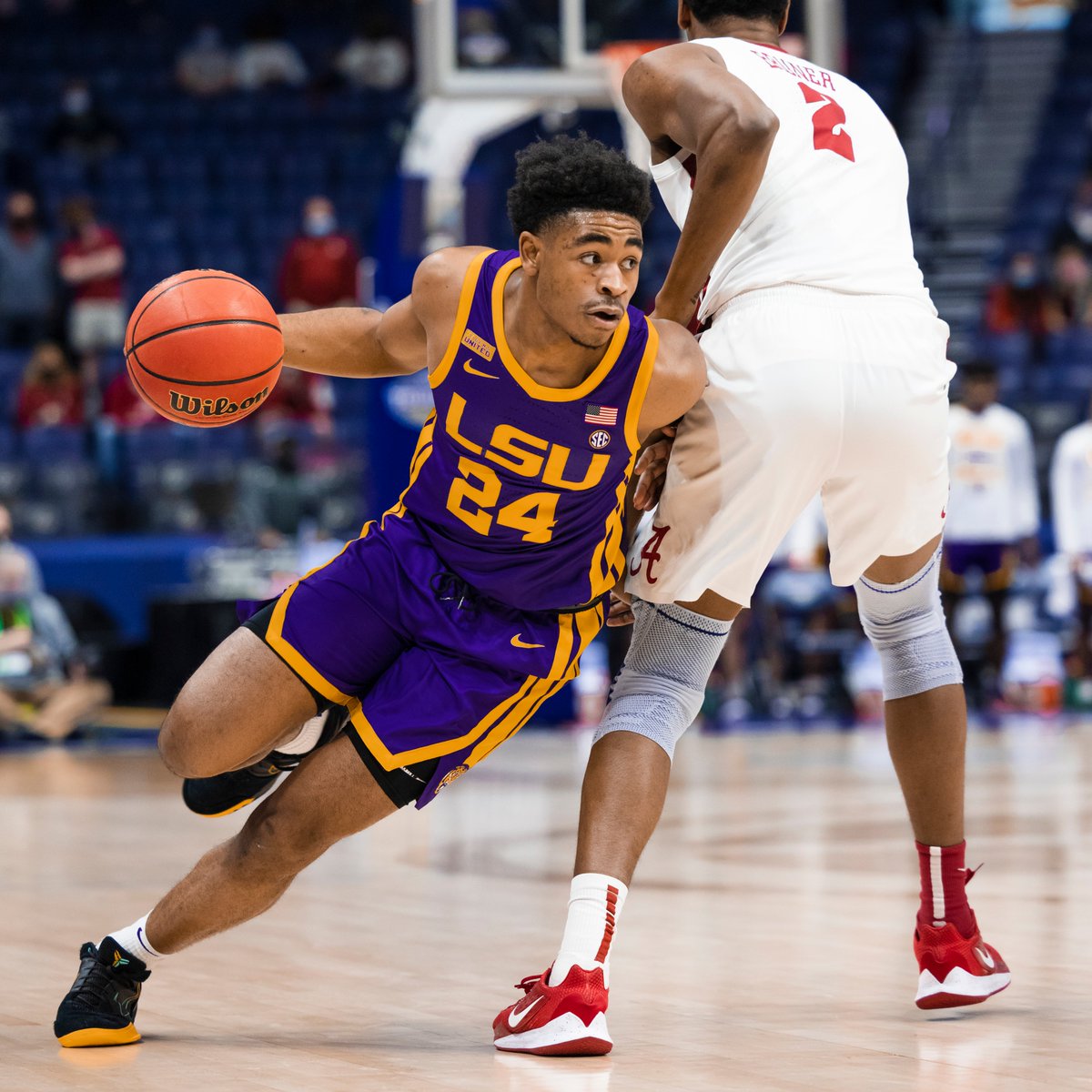
He never captured a national championship, but he is arguably the most revered coach in LSU history.
Dale Brown did win more games than other basketball coach in LSU history, but he was much more than the sum of his victories, which totaled 448.
At 85, Brown is a survivor of a stroke, open heart surgery and flesh-eating bacteria. A peripatetic adventurer, he will always be a man on the move, having visited nearly 100 countries as a globetrotting ambassador for social justice and for Louisiana.
Brown remains a force of nature with an outsized personality that dominates every room he enters.
That overpowering persona prompted the athletic director who hired him, Carl Maddox, to ask Joe Dean in amazement after interviewing him, “Is this guy for real?”
Brown logged 25 years as the maestro of the Assembly Center and attracted a legion of players from all parts of the United States and several foreign outposts. He dared to journey to the Soviet Union at the height of the Cold War in a bid to bring Russian strongman Arvydas Sabonis to Tigertown.
That odyssey ended unsuccessfully, but Brown’s best players, Shaquille O’Neal, Mahmoud Abdul-Raul, Rudy Macklin and John WIlliams, hailed from Texas, Mississippi, Kentucky and California and chose LSU in large part because of the compelling charisma of the man from the tiny North Dakota hamlet of Minot. He defied monumental odds and built a power that for 15 years was the equal of the Kentucky bluegrass monolith in Lexington.
The women in Brown’s life have fueled his boundless energy. He used athletics to escape poverty in one of the most remote regions of America. His mother Agnes was deserted by Brown’s father before Dale Duward Brown was born in 1935 amid the Great Depression. Her son has been fighting indignity ever since. As Gary Smith of Sports Illustrated observed, the defining objectives in Brown’s life diverge into two paths. His mantra is either “I will show you” or “I will help you.”
Brown’s adult life has been framed by Vonnie, his wife of more than 60 years, and his daughter Robyn, now 57. They are the constants for restless soul consistently yearning for new experiences and eager to traverse the planet in pursuit of knowledge of other cultures.
The missing link in his life is not the elusive national title that should have come in 1981 with a team that posted 31 wins and almost did come in 1987 with a team that lost 15 games.
It is that he did not father a son to blaze new trails with the Brown lineage. The 160 players Brown tutored in his quarter-century at LSU amount to the sons he never had. No coach is in closer contract with his former athletes than is Brown. He has followed careers and lives and a few deaths of all of them since he coached his last game for the Tigers in 1997.
Brown won a school record four SEC championships, beat Kentucky more than anyone else (19 times), and advanced to a pair of Final Fours at a school where it is a struggle to dominate SEC opponents on the court.
The basketball achievements are historic, and these are additional numbers in a scoreboard of life complied by the fiercely organized Brown, who maintains meticulous data on his extended family of players.
Players: 160
Blacks: 89
Whites: 71
Black Players with Two Parents: 42
White Players with Two Parents: 63
College Graduates: 112
White Graduates: 62
Black Graduates: 50
NBA Players: 19
NBA Draft Picks: 32
First Round Picks: 7
Professional Basketball Players: 85
Professional Football Players: 3
Professional Baseball Players: 2
Medical Doctors: 4
Ph.D.’s: 7
Lawyers: 3
Engineers: 4
Ministers: 5
Coaches: 28
Teachers: 7
High School Principals: 3
Own Businesses: 22
Corporate Presidents: 2
Corporate Vice Presidents: 4
Police Officers: 2
Brown has remarked that his players have refrained from felony convictions and embarrassing headlines since departing LSU. To paraphrase the Book of Luke, a tree is known by its fruit, and Brown’s progeny is impressive. He has produced an extraordinary collection of citizens who have been successful in many walks of life. The average is boosted by some NBA millionaires, but no other LSU program in or out of the athletic realm has produced the net worth per capita that Brown’s 160 athletes have amassed.
The 50th year of basketball at the Pete Maravich Assembly Center should include the naming of the court in honor of this coach, who converted a sleepy, stumbling machine into a potent juggernaut that mirrored his penchant for high octane action for more than a decade and for a brief period made basketball the signature sport at football-crazy LSU.
When he takes his last breath, the outpouring of affection will be profound for the man who became an unlikely legend in this state. Brown was a 36-year old interloper from the American West when he arrived in Baton Rouge. Nearly 49 years later, it can be stated with assurance there has never been another character or quote machine like him for writers who sought his comments on an array of challenges in our society and were fascinated by drama that frequently surrounded him.
Brown has ruffled many sensibilities with his brand of brash and outspoken verbiage through the decades, but he has kept us enthralled with countless acts of kindness and words of humility and fury depending on the situation.
I will help you. I will show you.
The coach has not lobbied for a simple gesture that is common sense. When Pete Maravich died at age 40 in 1988, it was Brown who implored the Louisiana Legislature and Gov. Buddy Roemer to name the Assembly Center in honor of the son of his predecessor.
The Dale Brown Court at the arena where he presided with spectacular performers who evolved into superb people is long overdue. Brown’s legacy will outlast his critics, and his surrogate sons are ample evidence of his contributions to his school, his city and his state.




I agree Dale Brown should be honored but do not with the court thing. I have another suggestion. Name the men’s practice facility after Dale Brown and the women’s practice facility after Sue Gunther. She also played her games on the same court. They both deserve recognition.
Thanks for all the wonderful memories, Coach!
Fantastic article on one of the greatest coaches in LSU history.
I believe Coach Brown’s time & record were equalled by Coach Sue Gunter, who also brought victory & a renewal of interest in Lady Tiger basketball – and, like Coach Brown, she would have been humbled to think this could be possible — how about we name the practice facilities for each of them = an equal honr!!